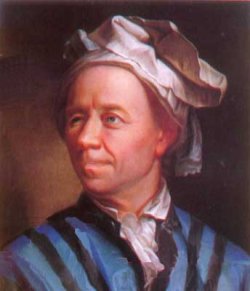
Perfectly even

Even perfect number must be of a very special form.
A perfect number is a whole number which equals the sum of its proper divisors: for example, $6$ is divisible by $2,3$ and $1$ and is also equal to the sum $1+2+3=6.$ Similarly, $28$ is divisible by $1,2,4,7$ and $14$ and equal to $1+2+4+7+14=28.$
Perfect numbers are easy to define, but finding examples is a different matter: although people have been looking since the time of the ancient Greeks, they have so far only found 51 perfect numbers. The largest of these has nearly 50 million digits. In a previous article we looked at the history of perfect numbers and mathematicians' struggle to find them. In this article we will delve a little deeper into their mathematics.
Prime perfect
Over 2000 years ago the ancient Greek mathematician Euclid proved an interesting result. He showed that if a number of the form
$$1+2+4+8+...+2^k,$$ for some positive integer $k\geq 1$ is a prime number, then the number \begin{equation}2^{k}(1+2+4+8+...+2^k)\end{equation} is perfect. As an example, for $k=1$ we have $$1+2=3$$ and $$2^1\times 3=6,$$ which is perfect. Similarly, for $k=4$ we have $$1+2+4+8+16=31$$ and $$2^4 \times 31=496,$$ which is also perfect. Modern mathematicians have a more convenient way of thinking about the same result, which doesn't involve a lengthy sum. They use the fact that $$1+2+4+8+...+2^k=2^{k+1}-1$$ to reformulate Euclid's result. It now says that if $$2^{k+1}-1$$ is prime, then $$2^k (2^{k+1}-1)$$ is perfect.
Owing to the historical fascination with perfect numbers, primes of the form $2^{k+1}-1$ now have a special name: they are called a Mersenne primes, after the French mathematician Marin Mersenne who studied them in 1644. In a voracious pursuit of even perfect numbers, many subsequent mathematicians have searched for the most efficient ways of identifying Mersenne primes, a phenomenon which we discuss later.
Striking perfection

Leonhard Euler proved interesting results about perfect numbers.
It's obvious that a perfect number of the form given in (2) is even: since $k\geq 1$, the perfect number is divisible by $2$. Thus, Euclid's result gives a method for finding even perfect numbers.
But does this method give you all even perfect numbers there are? The answer is yes, as the legendary Leonhard Euler proved in the eighteenth century.
This result marks a crucial turning point in the study of even perfect numbers because it provides a truly powerful description of them, enabling us to prove some striking results. For example, we can now quite easily prove that every even perfect number $n$ is of the form
$$n=1 + 2 + 3 +...+ p,$$
where $p=2^{k+1}-1$ denotes the Mersenne prime corresponding to the perfect number. In other words, every even perfect number can be realised as the sum of consecutive numbers starting from $1$. Here are some examples: \begin{eqnarray*} \textbf{6} =2^1\times 3 &= & 1+2+3 \\ \textbf{28} =2^2\times 7 &= & 1+2+3+4+5+6+7 \\ \textbf{496} = 2^4\times 31 &=& 1+2+3+4+5+6+7+8+9+10\\ &+& 11 + 12 + 13 + 14 + 15 + 16 + 17 + 18 + 19 + 20 \\ &+& 21 + 22 + 23 + 24 + 25 + 26 + 27 + 28 + 29 + 30\\ &+&31. \end{eqnarray*} For the proof, note that for any positive integer $p$ we have $$1+2+3+...+p=\frac{(p+1)p}{2}.$$ If $$p=2^{k+1}-1$$ then $$p+1=2^{k+1},$$ so $$\frac{(p+1)p}{2}=\frac{2^{k+1}}{2}p=2^kp=n,$$ as required.
There are other nice results about perfect numbers that are quite easy to prove using Euler's formula for them. For example, we can show that multiplying all the factors of an even perfect number $n=2^k p$ will always give the result $n^{k+1}$ and that adding up the reciprocals of all the factors of an even perfect number always gives $2$ as the result. See here for proofs.
Today we only know of 51 perfect numbers so it's natural to ask how many there are in total. Will we ever run out of perfect numbers, or are there infinitely many? As of yet, nobody knows the answer. It is one of the mysteries that still remain, and which make perfect numbers so intriguing.
So much for even perfect numbers. But what about odd ones? Do they even exist? This is what we will look at in the next article.

About the author
Kyrie Johnson is a college student who will be starting a doctorate programme in maths next fall. They are particularly fond of number theory because they adore how some of its most accessible problem statements — such as perfect numbers, Fermat's Last theorem, and the distribution of prime numbers — require intricate and complex solutions. When they're not thinking about number theory, they like rock climbing, listening to music, and playing games.